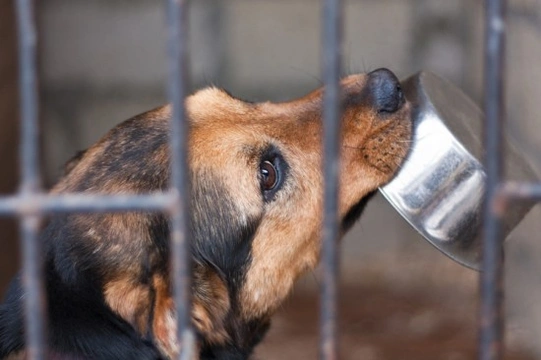
Guidance for Potential Adopters of a Rescue Dog
Firstly, you probably have an idea in mind of what kind of dog you would like - large or small; long-haired or short-haired, puppy or older dog, perhaps a particular breed. On the other hand, you may fall in love with a completely different type of dog if he or she is right for you - this often happens so it's much better to keep an open mind. You may be expecting to be able to walk around the kennels and look at the dogs to see if any of them "take your fancy". This can be very disruptive and stressful for the dogs so many rescue centres/shelters are now stopping this practise. Instead, you would be asked about your family and home environment to find out which dog may suit you and you may be given photos and descriptions of the dogs to look at to begin with. Meeting a specific dog can then be arranged as appropriate. Please don't expect there to be a "perfect" dog. Not all dogs are in rescue because of health or behaviour problems but the situation of being in kennels and moving to a new home may bring out some issues.Be prepared to ask some questions about the dog(s) you're interested in or the one(s) that the rescue centre/shelter thinks would be suitable for you. The dog's background may be a bit of a mystery but find out what the rescue centre/shelter know about the dog's age, health and behaviour. A reputable centre/shelter will be honest - if there is something you need to know, they will tell you as it's in everyone's best interests. Be cautious if they seem to be evasive or dismissive of your questions. But also be realistic and honest yourself - if a particular dog has health or behaviour issues, ask yourself if you are prepared to deal with this - if you genuinely don't have the time or resources (even with help from the rescue organisation) then it's better to say so, rather than get into a situation that's no good for you or the dog.Also find out if the dog has been or will be neutered, vaccinated, microchipped and wormed before you take it home. There will undoubtedly be a charge for this so you need to know what this will be - almost all organisations ask for a payment towards the dog's care.Then be prepared for the rescue organisation to want to know about you and your home. This is a good thing as it means they take the dogs' welfare seriously and they want all their dogs to go to forever homes, not returning to them because they haven't matched the right people to the right dogs. A home visit should be standard procedure to see that the dog will have a safe, secure and happy home. Be very wary of any organisation that doesn't do this. No reputable organisation would pressure you into taking a dog. Take time to think things over and don't rush into a decision, no matter how much you want to adopt a dog. You might also need time to prepare for your new dog's homecoming and organise the timing correctly - the rescue centre/shelter should respect your wishes with this. Ask what help is available once you adopt a dog - they may want to carry out follow up visits, they should offer advice by phone or email and in the worst-case scenario, if something untoward happens despite all the preparation, you should be able to return the dog to them.Finally, if you follow the guidance, you will adopt a dog that's right for you and your family and you can look forward to a happy future together with your new friend.



